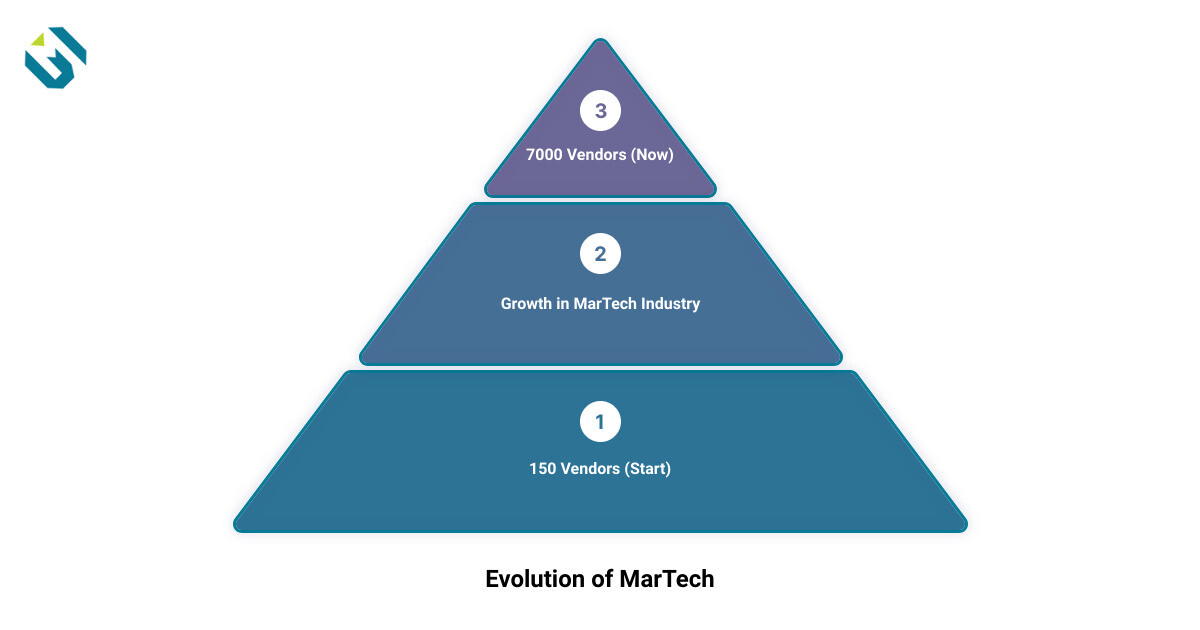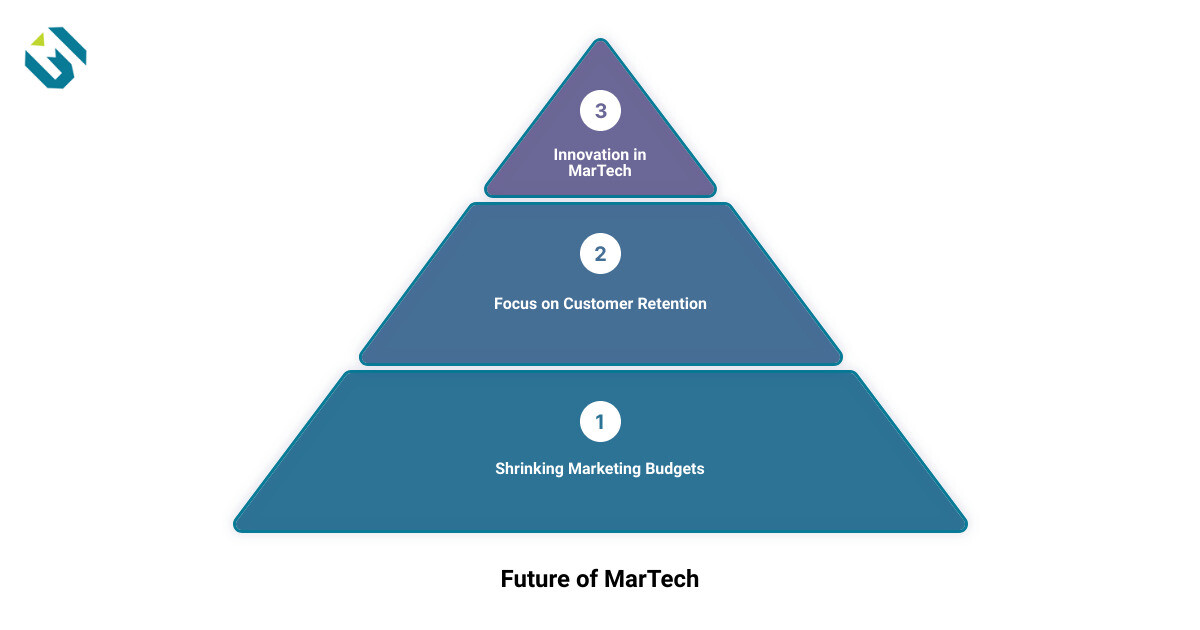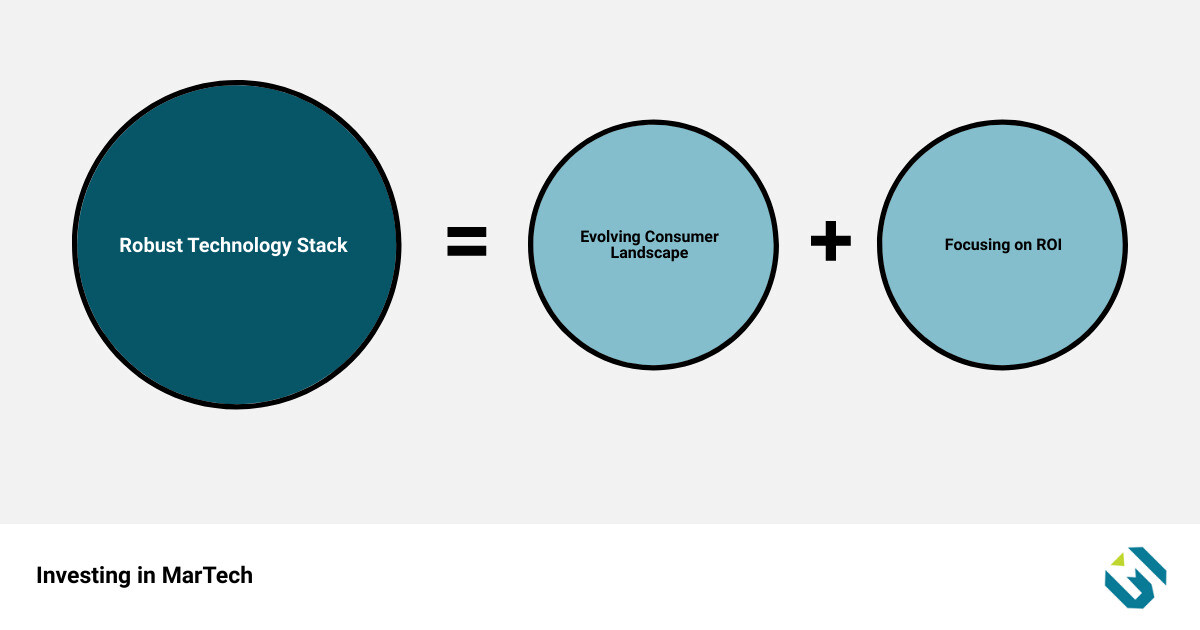In today’s fast-paced digital age, technology has become an integral part of our everyday lives, shaping how we work, play, and communicate. In the business world, it’s no different. Enter the dynamic field of marketing, a space that has been radically transformed by the emergence of new technologies. As an HR technology or workforce technology company looking to boost demand generation and increase revenue, understanding the role of technology in marketing is crucial.
Marketing technology, or MarTech, has revolutionized the way businesses reach their target audiences, build brand awareness, and drive sales. Harnessing the power of technology, businesses can now tailor their marketing strategies to specific customer profiles, predict consumer behavior, and measure the impact of their marketing efforts in real-time.
In this article, “The Latest Tech for Marketing Success: Boosting Your Strategy,” we will delve deeper into the world of tech for marketing, exploring its evolution, benefits, and the role it plays in amplifying marketing strategies. We will also highlight essential marketing technologies and future trends, providing insights into how you can leverage these tools to cut through the cluttered market and effectively reach your ideal customers.
Whether you’re looking to build a robust digital footprint, establish credibility and trust in your brand, or drive high growth, this guide will provide you with a comprehensive understanding of marketing technology and how it can catapult your marketing efforts to new heights. So, let’s get started!
Understanding Marketing Technology (MarTech)
Marketing technology, better known as MarTech, is the secret sauce that can supercharge your marketing strategy. But to truly harness its power, it’s crucial to have a firm grip on what it is, how it has evolved, and how it can benefit your business. Moreover, we’ll delve into the subtle, yet significant differences between MarTech and AdTech.
The Evolution of MarTech: From 150 to 7000 Vendors
MarTech has come a long way since its inception. In the early days, the MarTech landscape was relatively small with around 150 vendors offering specialized solutions. However, as the digital world expanded, so did the MarTech universe. Today, it’s estimated that there are between 10,000 to 15,000 marketing technology options available, an impressive testament to the innovation and growth within this sphere. With this vast array of options, businesses have the freedom to choose the most fitting tools to build out their unique MarTech stack and drive their demand generation engine.
The Benefits of Using MarTech: Efficiency, Effectiveness, and ROI
The proliferation of MarTech is not without reason. The benefits of using MarTech are multi-fold, with efficiency, effectiveness, and return on investment (ROI) topping the list. MarTech tools and software enable businesses to streamline their marketing processes, automate repetitive tasks, and gain valuable insights into their marketing performance. This not only boosts efficiency but also enhances the effectiveness of marketing campaigns. Moreover, MarTech can significantly improve ROI by allowing businesses to allocate marketing spend more accurately, track campaign performance in real-time, and make data-driven decisions.
The Difference Between MarTech and AdTech
While the terms MarTech and AdTech may sometimes be used interchangeably, they are distinct in their uses and functions. MarTech refers to the tools and technologies that help businesses create, communicate and deliver their offerings. It’s focused on building and managing customer relationships across various marketing channels. AdTech, on the other hand, is primarily used to promote offerings and influence buyer behavior. It’s all about delivering the right ads to the right people at the right time. Understanding this distinction can help businesses choose the right mix of technologies to achieve their marketing objectives.
In essence, MarTech is a game-changer that can unlock new avenues for growth and success in the cluttered market. By understanding its evolution, benefits, and differences with AdTech, businesses can make more informed decisions and build a powerful digital footprint to reach their ideal audience.
Essential Marketing Technologies for Success
In the fast-paced world of modern marketing, keeping up with the latest tech can make a significant difference in your success. The right tools can streamline your efforts, personalize your communication, and provide valuable insights to drive your strategy. Here are seven essential marketing technologies that can propel your business forward.
CRM Systems: The Backbone of Customer Relationship Management
In the realm of marketing technology, Customer Relationship Management (CRM) systems hold a pivotal position. These platforms allow businesses to manage and analyze customer interactions and data throughout the customer lifecycle. With the aim of improving business relationships, they help you understand where leads are in the funnel and assess opportunity levels. This is particularly crucial for B2B companies that focus on lead generation.
Marketing Automation: Streamlining Marketing Efforts
Marketing automation is the core of your demand generation activity. It’s not just an email platform, but a multifaceted tool that manages various marketing and sales activities. From email marketing, social media management, ad campaigns, to website and blog management, marketing automation is the epicenter of targeted marketing campaigns. Some popular marketing automation platforms include HubSpot, Marketo, and Salesforce Marketing Cloud.
Content Management Systems: Organizing and Managing Digital Content
A Content Management System (CMS) is essential for powering your website and blog. It allows you to organize and manage your digital content effectively. With 88 percent of consumers researching products online before purchasing, a quality website is a necessity. Your website serves as the backbone of your digital strategy, driving customers to your brand.
Social Media Management Tools: Optimizing Social Media Presence
Social media management tools are crucial for maintaining an active, engaging presence on various social platforms. These tools help you schedule posts, interact with your audience, and track the performance of your social media campaigns. By managing your social media effectively, you can increase brand awareness and reach a wider audience.
Analytics Tools: Gaining Actionable Insights
Analytics tools are key to understanding the performance of your marketing campaigns. They provide actionable insights into customer behavior, campaign performance, and website traffic. By leveraging these insights, you can refine your marketing strategies, improve customer engagement, and drive growth.
Email Marketing Platforms: Personalizing Customer Communication
Email marketing platforms play a crucial role in fostering direct relationships with customers. They allow you to send personalized messages to your target audience, improving engagement and conversion rates. As more than 50 percent of US respondents admit to checking their email more than 10 times per day, email remains an effective way for brands to reach customers.
Mobile Marketing Platforms: Reaching Customers on the Go
Lastly, mobile marketing platforms allow businesses to reach customers wherever they are. With mobile usage on the rise, these platforms enable businesses to deliver personalized content directly to customers’ mobile devices. They offer a range of capabilities, including SMS marketing, in-app messaging, and push notifications, making them an essential tool in any marketer’s arsenal.
In conclusion, leveraging these essential marketing technologies can offer a competitive edge in today’s digital landscape. They not only streamline marketing efforts but also facilitate more personalized and targeted communication, leading to more engaged customers and ultimately, business growth.
The Future of MarTech: Predictions and Trends
Just as we’ve seen the evolution of marketing technology over the past decade, the future promises even more exciting developments. As we look ahead, there are four key trends that will shape the world of MarTech: shrinking marketing budgets, a focus on customer retention, the understanding of marketing spend, and constant innovation.
Shrinking Marketing Budgets: Doing More with Less
Most organizations are experiencing a plateau in their marketing budgets, according to predictions from Gartner. This trend will put more pressure on businesses to justify their marketing ROI and spend. As a result, companies will need to get more resourceful and strategic with their marketing efforts to ensure they’re getting the most bang for their buck.
Focus on Customer Retention: Building Long-Term Relationships
It’s a well-known fact that attracting new customers costs significantly more than retaining existing ones. Hence, there’s a shift in the marketing focus towards developing client relationships. This trend emphasizes the value of customer loyalty and the importance of nurturing long-term relationships with customers. By leveraging marketing technology, companies can better understand their customers’ needs and behavior, leading to more effective customer retention strategies.
Understanding Marketing Spend: Allocating Resources Wisely
According to Gartner’s Marketing Technology Survey 2018, there’s been a significant increase in marketers’ understanding of multitouch attribution (MTA)—a method used to measure ad effectiveness. However, MTA is limited to proving online value. As marketers are under constant pressure to prove ROI on all channels, they will need to adopt unified marketing measurement. This trend highlights the growing importance of understanding and optimizing marketing spend to maximize ROI.
Innovation in MarTech: The Next Big Thing
The ever-increasing competition between established enterprise software companies investing in cloud-based solutions and up-and-coming startups is leading to a surge in innovation in marketing. Furthermore, with the emergence of the Internet of Things (IoT) and ongoing development in AI marketing, marketing technology companies will be able to offer more robust solutions. These advances will help marketers directly connect with their audiences and establish a solid ROI.
As we look towards the future, these trends will continue to shape the way businesses leverage MarTech. By understanding and adapting to these trends, companies can stay ahead of the curve and maximize their marketing success.
Overcoming Challenges in Implementing MarTech
The rise of MarTech is a game-changer in today’s digital landscape. However, implementing these technologies comes with its own set of challenges. From choosing the right platform to changing company culture and managing large amounts of data, businesses must navigate through these obstacles to fully harness the power of MarTech.
Selecting the Right Platform: Finding the Best Fit
The journey towards successful MarTech implementation begins with choosing the right platform. This decision extends beyond just finding the right technology—it’s about finding the right partner. With over 7000 vendors in the MarTech landscape, selecting a platform that aligns with your organization’s needs can be daunting. The key is to look for a platform that not only caters to your current requirements but also demonstrates scalability for future growth. However, remember that integrating a new system can often present unexpected challenges, so ensuring a smooth roll-out process is vital.
Changing Company Culture: Embracing Technology
Organizational culture plays a crucial role in the successful adoption of MarTech. As Peter Drucker famously said, “culture eats strategy for breakfast.” Embracing technology often requires a shift in how marketing functions, which can be a significant hurdle. Training colleagues on new platforms and workflows can disrupt day-to-day activities. Therefore, fostering a culture that is open to change and innovation is crucial. This process involves continuous learning, open communication, and leadership support.
Processing Large Amounts of Data: Making Sense of Information
In today’s digital era, businesses are flooded with data. However, making sense of this data avalanche can be a challenge. Selecting the right vendor and collaborating with data scientists can help analyze vast amounts of information and steer your marketing department in the right direction. The goal is to turn raw data into actionable insights that can power your marketing strategy.
The Importance of Agility: Adapting to Change
In the fast-paced world of digital marketing, agility is key. An agile approach promotes a project management process that combines engineering best practices with business development, and emphasizes constant communication and adaptation. Agility allows marketers to be more flexible, with more frequent and shorter cycles of action. This approach can have tremendous results, especially when rolling out products to internal team members. In fact, 93 percent of CMOs who employ agile strategies cite that it has helped increase their speed to market for ideas, campaigns, and products.
Overcoming these challenges is no small feat. But by navigating these obstacles effectively, businesses can fully harness the power of MarTech, boosting their marketing strategies and achieving their growth goals.
The Role of Marketing Technologists in Utilizing MarTech
In this digital age, marketing technologists play a pivotal role in maximizing the potential of MarTech. Their expertise lies at the intersection of marketing and technology, enabling businesses to fully harness the power of their marketing technology stack. Let’s delve into the specific roles they play.
Using Data to Improve Campaigns: Making Informed Decisions
Marketing technologists leverage data to fuel their marketing strategies. They sift through mountains of data to identify key insights that can guide their teams in crafting more effective campaigns. By utilizing data effectively, marketing technologists can help their teams develop more targeted and engaging content that resonates with their audience, boosting campaign ROI.
Analyzing Software Capabilities: Maximizing Technology Use
Good marketing technologists also excel in analyzing software capabilities within the needs of the organization. They assess the capabilities of various MarTech tools and platforms and align them with the organization’s marketing objectives. This ensures that the chosen technologies are not just the latest fads, but are truly beneficial and relevant to the organization’s marketing needs.
Bridging Marketing and IT: Facilitating Collaboration
Acting as the bridge between marketing and IT, marketing technologists ensure a seamless integration of technology into marketing strategies. They facilitate communication between marketing and IT departments, promoting mutual understanding and collaboration. This cross-functional collaboration is critical in the rapidly evolving marketing landscape, where the successful deployment of MarTech often requires the technical expertise of IT professionals.
Breaking Out of Legacy Systems: Embracing Modern Solutions
Often, organizations are entangled in outdated legacy systems that hinder their marketing efforts. Marketing technologists are instrumental in breaking out of these restrictive systems and embracing modern MarTech solutions. They evaluate the existing systems and identify the areas that need improvement, helping the organization transition to more efficient and effective technologies.
To conclude, the role of marketing technologists in today’s digital environment is pivotal. They enable businesses to make informed decisions, maximize their technology usage, foster collaboration between marketing and IT, and aid in the shift from legacy systems to modern solutions. Through their expertise, they help businesses turn their MarTech investments into a strategic advantage, setting the stage for marketing success.
Investing in MarTech: Building a Robust Technology Stack
Transforming a conventional marketing strategy into a technological powerhouse isn’t an overnight affair. It requires a thoughtful and strategic approach towards building an effective marketing technology stack. Let’s explore how you can do this while keeping in mind the evolving consumer landscape, focusing on ROI, and minimizing deployment and onboarding roadblocks.
The Evolving Consumer Landscape: Meeting Changing Needs
In the ever-changing digital landscape, consumer needs and behaviors are constantly evolving. Businesses must adapt accordingly to stay relevant and competitive. This is where MarTech investments become increasingly crucial. To meet this shifting consumer landscape, marketing teams must ensure they are outfitting their MarTech stacks with intelligent solutions that not only respond to current consumer needs but are also equipped to adapt to future trends. Leveraging AI marketing or data-driven marketing strategies, for instance, can provide actionable insights to better understand and cater to consumer behavior.
Focusing on ROI: Ensuring Value for Money
ROI is a crucial aspect of any business investment. While investing in MarTech, it’s essential to choose solutions that offer a significant return on investment. As Gartner predicts leveling off of marketing budgets, it becomes even more critical to justify marketing ROI. Hence, marketing technologies should be selected based on their potential to drive business growth and revenue, rather than just their feature set. For instance, using unified marketing measurement can help marketers effectively measure ad effectiveness across all channels, thereby ensuring a comprehensive understanding of their marketing spend and its impact on revenue.
Minimizing Deployment and Onboarding Roadblocks: Ensuring Smooth Implementation
While MarTech can open up new avenues for marketing success, its implementation can often present roadblocks. These could range from integrating the new system with existing workflows to training employees to use it effectively. It’s critical to minimize these deployment and onboarding roadblocks to ensure a smooth transition and faster time to value. A well-planned approach, including diligent vendor selection, comprehensive training programs, and ongoing support, can go a long way in ensuring a seamless transition and successful MarTech implementation.
Investing intelligently in MarTech can truly revolutionize your marketing strategy. By aligning your technology stack with evolving consumer needs, focusing on ROI, and minimizing implementation roadblocks, you can effectively leverage MarTech to drive business growth and stay ahead in the competitive market landscape.
Conclusion: The Power of MarTech in Boosting Marketing Strategy
As we’ve explored, marketing technology (MarTech) is a game-changer, propelling businesses to new heights of digital success. Its power lies not only in its ability to automate and streamline operations for marketing teams, but also in its potential to facilitate deeper, more meaningful connections with customers. This conclusion is not just an ending, but a call to action for HR tech companies to embrace the power of MarTech and supercharge their marketing strategy.
In an ever-evolving consumer landscape, the importance of investing in MarTech cannot be understated. It enables companies to stay current, meet customers where they are, and consistently deliver value. This is especially crucial for companies like those in the HR tech space, where the market dynamics are constantly shifting, and the need to stay relevant and competitive is paramount.
The key to maximizing the power of MarTech lies in a well-structured strategy focused on ROI. It’s critical to choose solutions that offer tangible returns on investment, ensuring that every dollar spent on technology contributes value to the organization. This data-driven approach not only propels growth but also helps to justify marketing spend, a matter of increasing importance in light of shrinking marketing budgets.
However, the journey to MarTech success is not without its roadblocks. From selecting the right platform to changing company culture and processing large amounts of data, there are several challenges to navigate. Addressing these challenges head-on, with a focus on minimizing deployment and onboarding roadblocks, can significantly shorten the time to value and ensure a smooth MarTech implementation.
The future of MarTech is promising. With the advent of new technologies and the continuous evolution of existing ones, the potential for innovation in the marketing space is boundless. The rise of marketing technologists, who bridge the gap between marketing and IT, further underscores the importance of this field.
In conclusion, the power of MarTech in boosting marketing strategy is undeniable. It’s an essential tool for businesses striving to build a robust digital footprint, attract their ideal customer profile, and drive high growth. Companies like GrowthMode Marketing are leading the way, proving that a well-executed MarTech strategy can indeed revolutionize marketing, build brand awareness, credibility, and trust, ultimately propelling business success in the crowded HR tech market.





